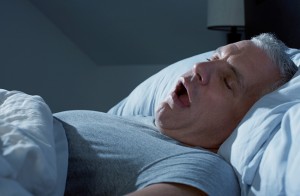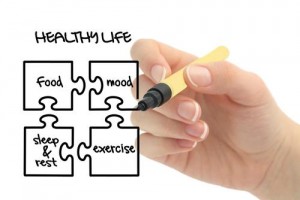Sleep. It’s something that almost everyone has a love/hate relationship with. Whether it it enjoying time spent sleeping in on the weekend, or oversleeping for that 8 AM class you signed up for. Regardless, sleep plays an important role in all our lives, and it  is especially important for students who need to balance an academic and social life. Getting an adequate amount of sleep is crucial for both physical and mental health. But the question remains: how much sleep does an individual really need?
is especially important for students who need to balance an academic and social life. Getting an adequate amount of sleep is crucial for both physical and mental health. But the question remains: how much sleep does an individual really need?
Much like food and water, sleep is essential for human survival. In today’s fast paced society, many people face chronic sleep deprivation. The Sleep Foundation recommends that young adults get anywhere from 7 to 9 hours of sleep. This range goes down as an individual ages. Older adults aged 65 years and older only require about 7 to 8 hours of sleep. Getting enough sleep is important to be productive the next day, as well as for preventing illnesses and disease. However, it should be noted that the amount of sleep is not the only thing that is important. What truly matters, is the quality of an individual’s sleep.
Signs of Sleep Deprivation
Sleep deprivation can take on many forms and it can present itself through various symptoms. Some of these symptoms include: feeling the need to sleep in on weekends, having trouble waking up  in the morning, requiring an alarm to wake up in the morning, and requiring naps to get through the day. I’m sure after reading these symptoms, a lot of people will realize they have fallen prey to sleep deprivation. This isn’t that surprising, considering that the CDC reports that about a third of Americans suffer from sleep deprivation. If you think the symptoms listed above are not a big deal, you should consider that sleep deprivation can impair cognitive abilities. Sleep deprivation can have drastic effects on the brain. These effects can go as far as reduced blood flow to the brain and slowing down metabolism. Bad news for athletes and students alike.
in the morning, requiring an alarm to wake up in the morning, and requiring naps to get through the day. I’m sure after reading these symptoms, a lot of people will realize they have fallen prey to sleep deprivation. This isn’t that surprising, considering that the CDC reports that about a third of Americans suffer from sleep deprivation. If you think the symptoms listed above are not a big deal, you should consider that sleep deprivation can impair cognitive abilities. Sleep deprivation can have drastic effects on the brain. These effects can go as far as reduced blood flow to the brain and slowing down metabolism. Bad news for athletes and students alike.
How to Improve Sleeping Patterns
All this information begs the question; how can I achieve a better night’s sleep? For starters, it has become common knowledge that establishing a regimented sleeping schedule is crucial. This means going to bed and waking up around the same time every day . Additionally, one should avoid stimulus from electronic devices, such as cell phones or laptops before going to bed. Furthermore, exercising daily is not only good for one’s overal health, but it will also help you sleep better at night. Thus no, rest is not for the weak. In fact, a lack of rest will make you feel weak, tired, and prone to getting sick.
. Additionally, one should avoid stimulus from electronic devices, such as cell phones or laptops before going to bed. Furthermore, exercising daily is not only good for one’s overal health, but it will also help you sleep better at night. Thus no, rest is not for the weak. In fact, a lack of rest will make you feel weak, tired, and prone to getting sick.
Picture sources:

As someone is sleep deprived as I write this comment I found this post very interesting. I am a big sleeper and I feel the effects of a short rest. Sleep deprivation can cause us to have to rely on coffee and energy drinks to stay awake, which can cause a new slate of negative effects like stress and addiction. Some of them are explained in more detail here http://www.caffeineinformer.com/top-10-energy-drink-dangers.
Very interesting that sleep declines as we go through life. It is understandable that growing children need more sleep. It seems weird that older people need less sleep than us. When I think of an older person, I think of someone going to sleep at 7 pm and waking up at 11am. Is this because they are not as busy and have finally learned time management or is it because they actually require more rest as they reach the ends of their lives.
Love the word play in the title of your article. I agree that sleep deprivation is an issue that faces many college aged students. Part of the problem is that we’re terrible at scheduling, but we also fail to accept (because many of us do know and choose to ignore) the detriments of sleep deprivation. Sleep is a fascinating topic, because so little is known about certain aspects of it. We sleep for almost a third of our lives, but we don’t really know why. A scary aspect of sleep deprivation is “micro sleeps”. Its often the cause of many accidents, and its a shame, because it could be easily avoided if people took time to sleep, so they aren’t weak during the day. http://abcnews.go.com/Health/microsleep-brain-fall-asleep-seconds-noticing/story?id=35304495
I can definitely relate to this post because I am one of those people that realized I am sleep deprived after reading the symptoms that you mentioned. For a couple weeks last year I noticed that I hadn’t been sleeping well at all and never really came to a conclusion as to why that would be but just assumed it was because of the short naps that I took mid-day because i couldn’t sleep that night. I thought that it was just one night every so often but soon realized that it was happening for long periods of time. I recently have had a lot of trouble sleeping and decided to do a little research and found this which explains some reasons that could explain why i can’t sleep.
I know that sleep is definitely not for the weak. I think a lot of people struggle with sleep deprivation, especially in college. I think that establishing a sleep schedule is very important for college students especially. Going to bed at similar times each night and waking up at a similar time will give people a better nights sleep. I think also doing small things like turning your electronic off and not going on them before bed and trying to exercise daily will have huge benefits. Sleep is extremely important to our health and if you have the chance to go to bed instead of watch netflix, choose sleep!
This is a very relevant article for college students. Sleep is something we’ve always been told we need to get a lot of, but especially now, when we are at our busiest time ever, it is hard to fit a quality sleep into your schedule every night. For me, I find myself getting much less sleep than I would like. I love to sleep, I just don’t have the time for it. Scientists have different beliefs about how much sleep students should get. Some firmly believe we need at least eight hours, while others believe we may only need 5-6. This article below talks about how every person’s body requires a different amount of sleep.
http://campusgrotto.com/how-much-should-college-students-sleep.html